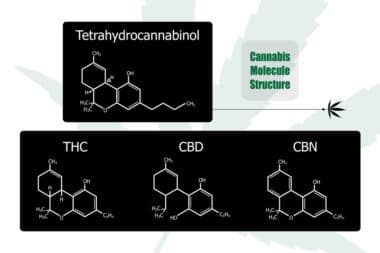One of the most common benefits of CBD oil is pain relief, and definitely one of the many reasons why more and more people are jumping on the CBD bandwagon. We’re not talking about heartaches here, but, of course, you can try. Besides, CBD oil is also known to relieve symptoms of depression. So, it won’t really hurt if you give it a shot. However, in this article, our focus is on CBD oil’s role in relieving pain.
What kind of pain, you may ask? Well, that’s a good question and it sounds that you are really in to get valuable information about this topic. Therefore, let’s dive in the details now.
What is CBD Oil?
CBD oil is a product made from cannabis. The hemp plants and marijuana are two of the major cannabis plants that are used in extracting CBD. In this article, we will focus on the CBD oil that is derived from industrial hemp. Unlike in marijuana, CBD oil taken from this source doesn’t contain more than 0.3% THC or tetrahydrocannabinol. Hence, it does not have the psychoactive effects, or it does not cause the “high” sensation produced by high levels of THC (25%-30%).
How Does CBD Relieve Pain?
CBD can be a natural alternative for pain management according to studies. It can be helpful for people experiencing chronic pain, and/or pain caused by several conditions like arthritis, multiple sclerosis, fibromyalgia, irritable bowel syndrome, migraines, temporomandibular disorder (TMJ), and cancer.
CBD affects the body differently than the way THC does. Based on a study posted in Neurotherapeutics, cannabidiol or CBD does very little to the ECS or endocannabinoid system. The endocannabinoid system is a specialized system in the human body that is involved in regulating sleep, pain, appetite and immune response. Instead of directly affecting it, CBD inhibits or activates other compounds that are present in the ECS.
For instance, cannabidiol (CBD) inhibits the body from absorbing anandamide, a compound associated with pain regulation. In turn, the increased level of anandamide in the bloodstream may help in reducing the amount of pain that a person feels.
Studies have also shown that CBD may reduce inflammation, which can cause pain, or might worsen the pain sensation. Regardless of the source of pain, may it be due to swelling, a chronic medical condition, or a certain disease, one thing is for sure — it negatively affects one’s daily functioning.
To make things worse, standard over-the-counter pain relievers, narcotics, opioids, and other anti-inflammatory drugs have their share of negative effects. Some of the common negative effects of traditional drugs are liver damage, cardiovascular damage, withdrawal, addiction, and so much more.
Side Effects of CBD
Below are some of the common side effects of CBD, as published in a review in Cannabis and Cannabinoid Research:
- Fatigue
- Diarrhea
- Weight gain or weight loss
- Changes in appetite
CBD may produce other side effects when combined with THC. These include anxiety, mental confusion, dizziness, dry mouth, low blood pressure, nausea, and vomiting. Taking high doses of CBD may also worsen muscle tremors and movements in people with Parkinson’s disease.
Currently, there are still limited studies focusing on the side effects of CBD to humans. So, that can be a reason why we can’t find that much information about it. For the meantime, it is best to consult the expert advice of a physician before taking any products with CBD. And of course, it is important to observe the effects of CBD in our body because we may have different reactions to it. As they say, “one man’s trash may be another man’s treasure.”
Safety Precautions
In addition to the limited studies regarding CBD’s side effects, there is also a lack of regulation of many products containing CBD. Some products also have inconsistencies with their content. In addition, some may also have high amounts of the psychoactive component THC, and the concentration of cannabidiol may not be the same. Hence, we couldn’t emphasize enough the importance of reading the label and of finding out more about the credibility of the seller.
Drug Interactions with CBD
Studies have also shown that CBD may interact with some medications, such as benzodiazepines, phenobarbital, morphine, fentanyl, theophylline, progesterone, clozapine, warfarin, and even with antibiotics and NSAIDs. According to the District of Columbia Department of Health, CBD can also increase the serum concentrations — the amount of medication in your blood — of several drugs, including antihistamines, antidepressants, antiretrovirals, beta blockers, and calcium channel blockers.
It’s noteworthy, though, that these interactions largely depend on the dosage of the drug and the type of CBD product that you are taking. According to Yasmin Hurd, a CBD researcher and the director of the Addiction Institute at the Icahn School of Medicine at Mount Sinai, “If the concentration of CBD is high enough, it could inhibit the activity of those enzymes, so you would get more of the other drug getting into your system.”
On the other hand, a low amount of CBD doesn’t really have a significant effect on how the body processes other medications. Unfortunately, though, there hasn’t been enough research that tells the amount of CBD that is considered safe.









Reply